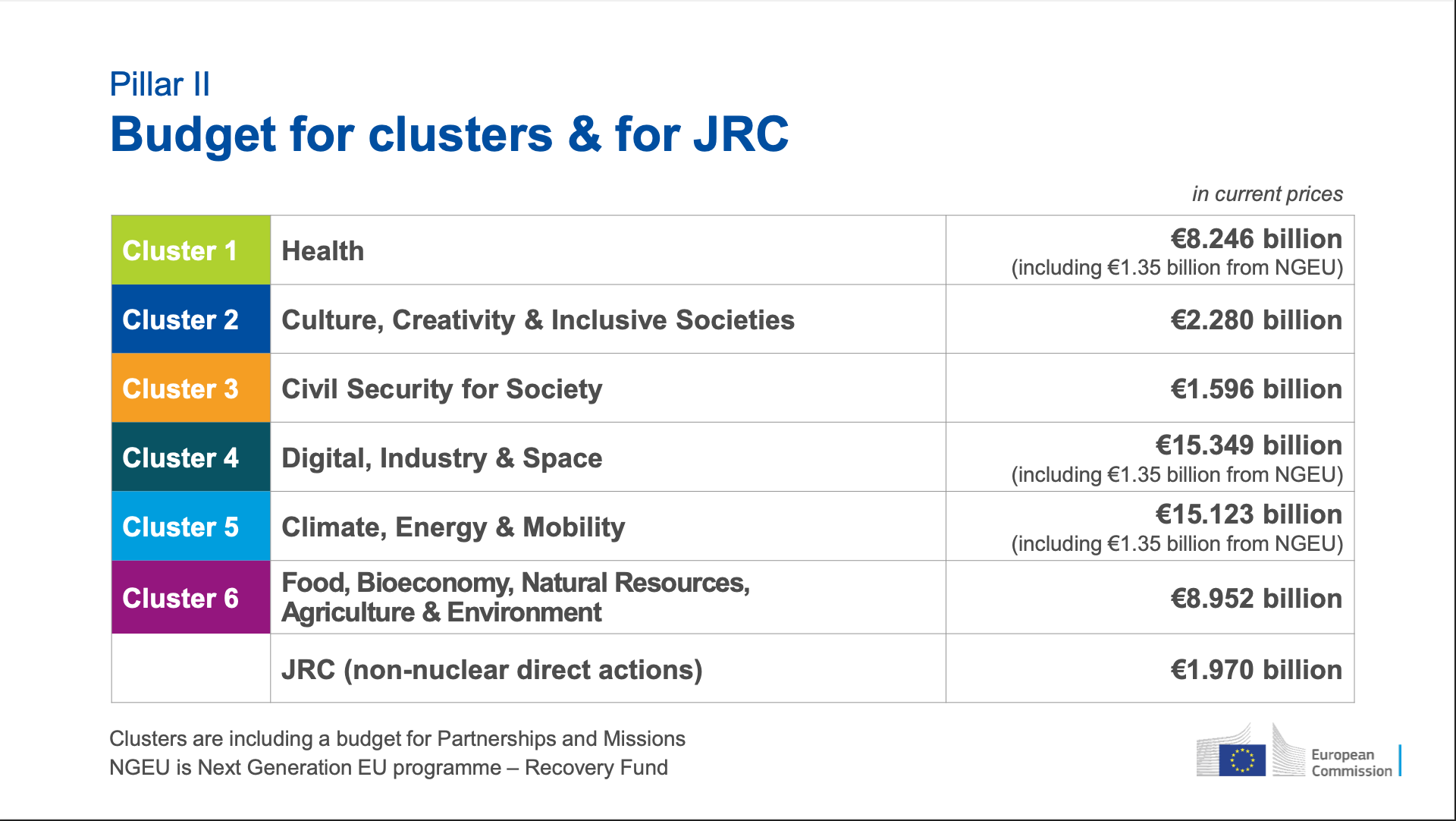Horizon Europe - Shaping Innovation in Europe
By Nurbolat Kambekov, 3 minutes
Today, Europe is facing numerous challenges, ranging from geopolitical crises to unprecedented inflation and economic difficulties. While many of those issues require complex solutions, some are deeply related to technological and scientific progress. The European Union members have long been at the forefront of innovation, yet the current position of many European industries indicates an apparent technology gap. Horizon Europe, the EU’s key funding programme for research and innovation, may become one of the ways to address the present technology gap and foster innovation in Europe for the years to come.
More than just a programme
With a budget of 95.5 billion euros and a duration of 7 years, Horizon Europe is an ambitious initiative designed with a clear vision in mind. Ultimately, the programme aims to perform the following function set by the European Commission:
Tackling climate change
Helping to achieve the UN’s Sustainable Development Goals
Boosting the EU’s competitiveness and growth
Facilitating collaboration and strengthening the impact of research and innovation in developing, supporting and implementing EU policies while tackling global challenges
Supporting the creation and better diffusion of excellent knowledge and technologies
Creating jobs, fully engaging the EU’s talent pool, boosting economic growth, promoting industrial competitiveness and optimizing investment impact within a strengthened European Research Area.
Each of these tasks deals with current challenges inside the EU, although spanning broad topics. Additionally, Horizon Europe provides particular activities to solve regional problems.
Pillars of success
The implementation of Horizon Europe involves three pillars that focus on different aspects of research and innovation.
Pillar I titled “Excellent Science” aims to reinforce the excellence of the EU’s Science base. A newly established European Innovation Council aims to support and provide funding to investigator-driven research by allocating grants based on scientific excellence. Such support would foster ambitious scientific projects that wouldn’t be realized in the private sector. Ultimately, this broadens the opportunities for the researchers, while contributing to innovation in the EU.
Pillar II focuses on “Global Challenges and European Industrial Competitiveness”. Under this pillar, the funds are allocated to initiatives from 6 clusters. Each one of the clusters represents a vital sector of societal development. The figure below represents the current budget:
Source: Graphics from the Horizon Europe presentation. European Commission, 2021
Interestingly, the budgeting plan reflects the priorities within the areas as digital- and climate-related initiatives are set to receive the most significant funding - at least 15 billion euros for each of the areas.
Finally, Pillar III or “Innovative Europe”, aims to stimulate innovation by bringing together different actors and stakeholders. In such a way, initiatives from both public and private sectors would be able to better communicate with the governmental structures and, ultimately, have a greater outreach.
Implementation is the key
Besides proposals for innovation-fostering actions, Horizon Europe has formulated the guidelines for the implementation. Essentially, those guidelines stress the importance of transparency and simplification of the funding process. For instance, this can be observed through the example of the digital tender portal, which provides easier access to EU funding. Moreover, the Horizon Europe-related initiatives are set to be executed in synergy with other existing EU projects, which would amplify the total impact.
Overall, Horizon Europe presents a great opportunity for both research initiatives as well the European governments struggling with technological progress. The overarching nature of technological progress allows for to enhancement of healthcare, digitalization, industries, agriculture and many more sectors that are crucial to European societies. Moreover, younger generations of Europeans are increasingly affected by the given initiative as the effects are to be measured in the upcoming decades.

